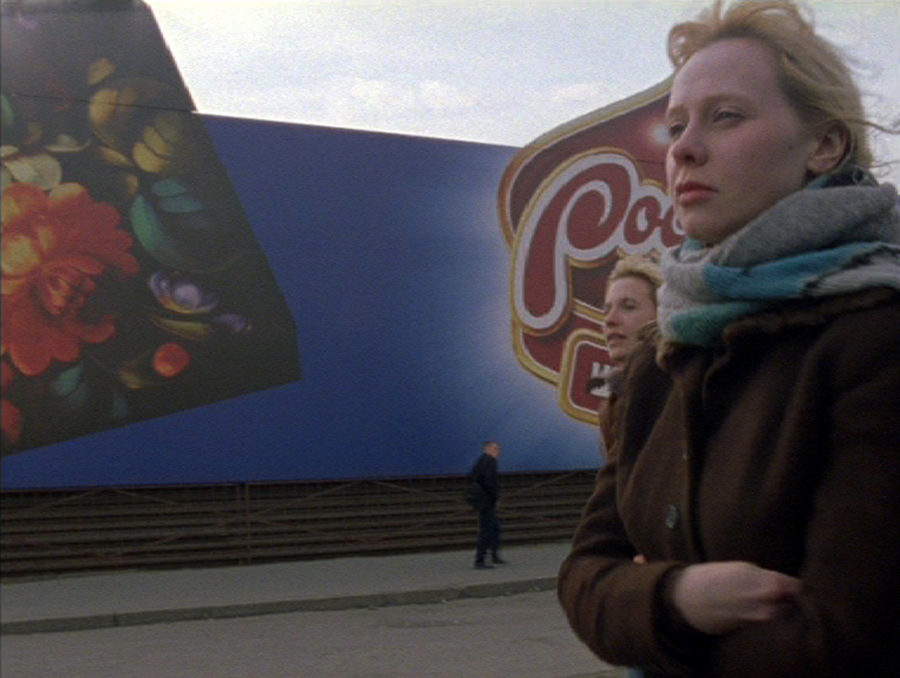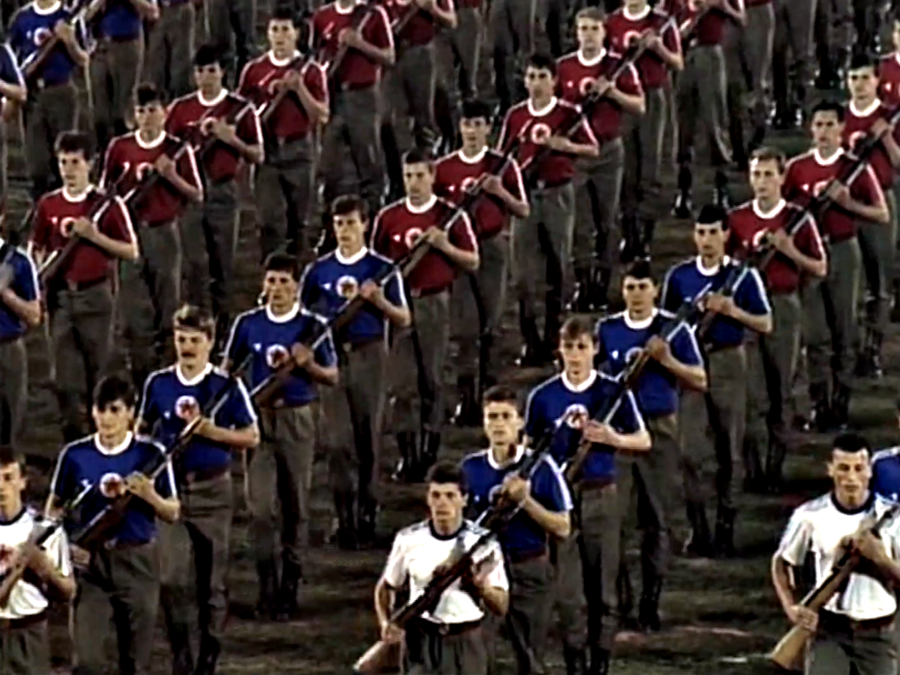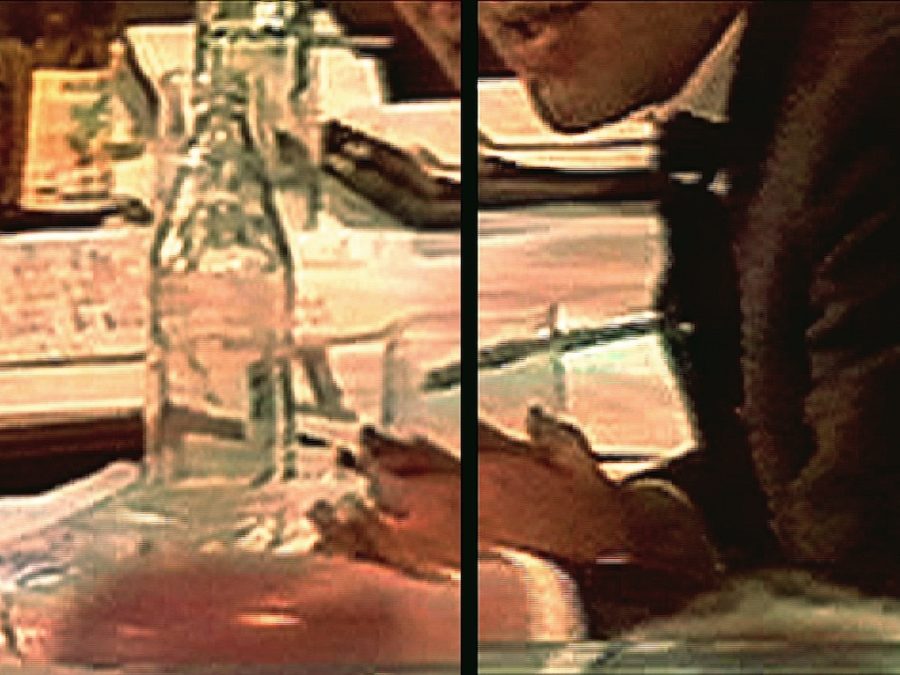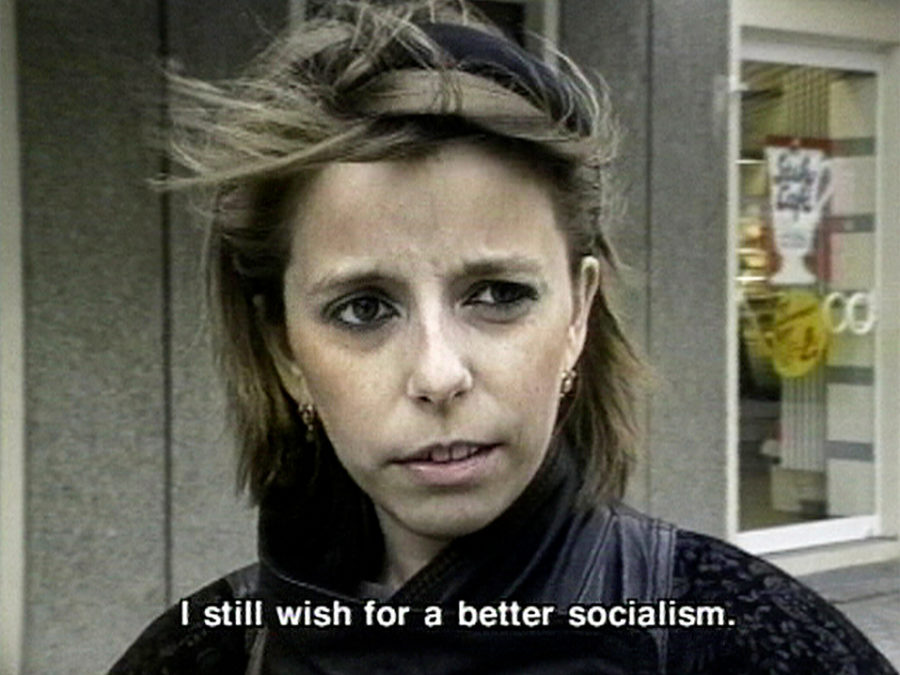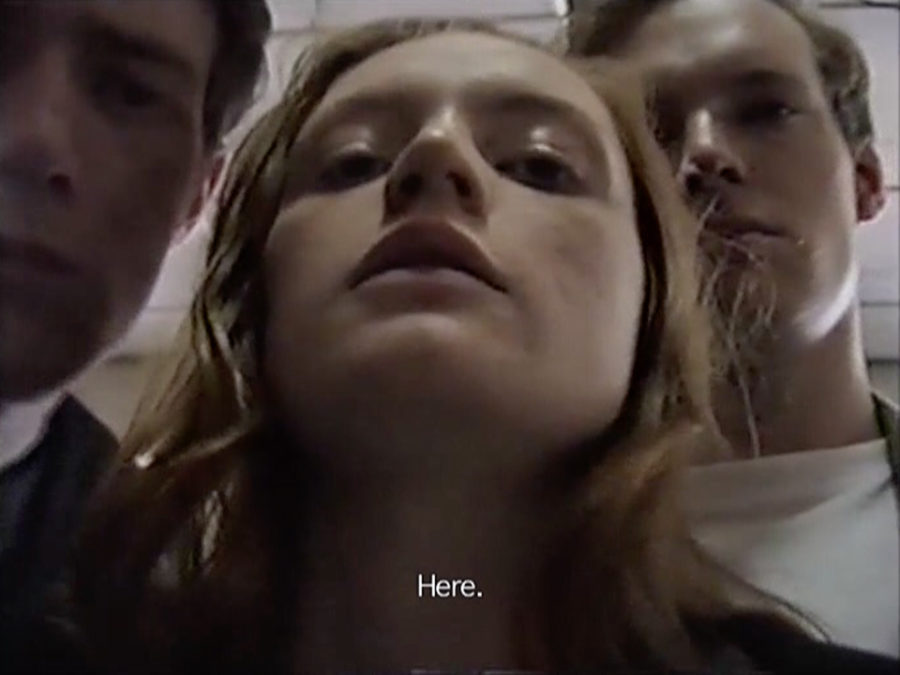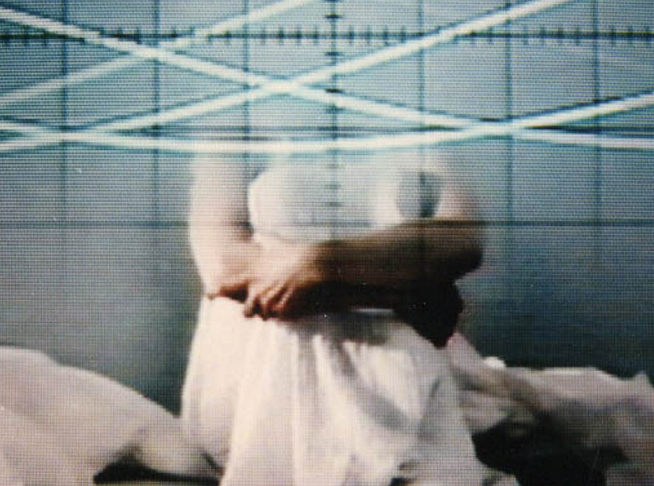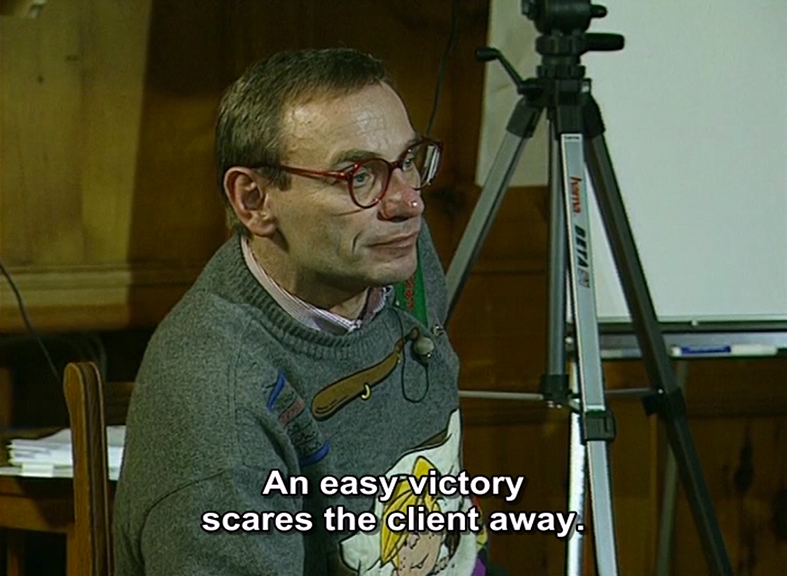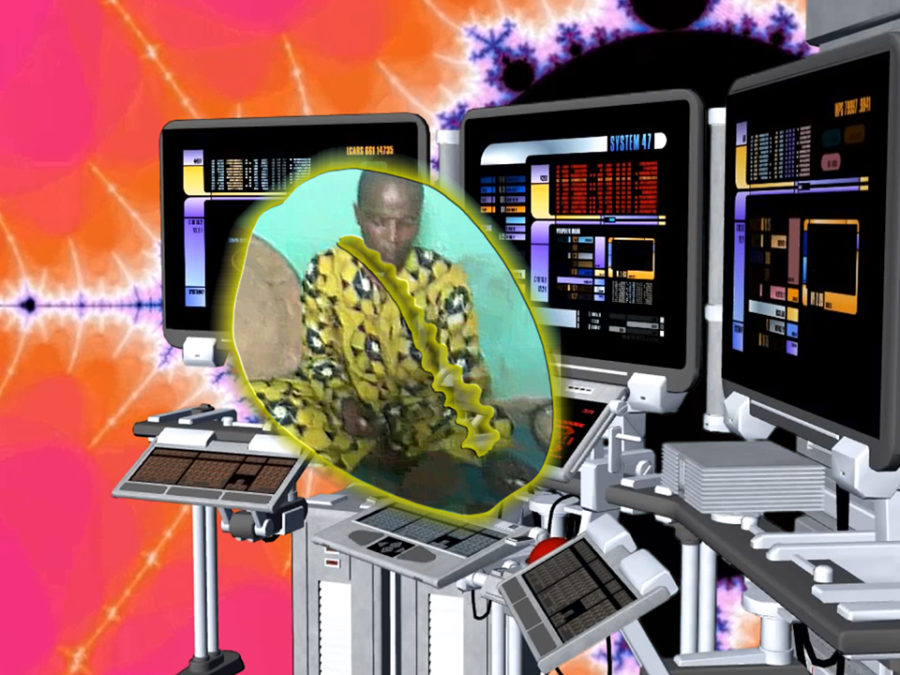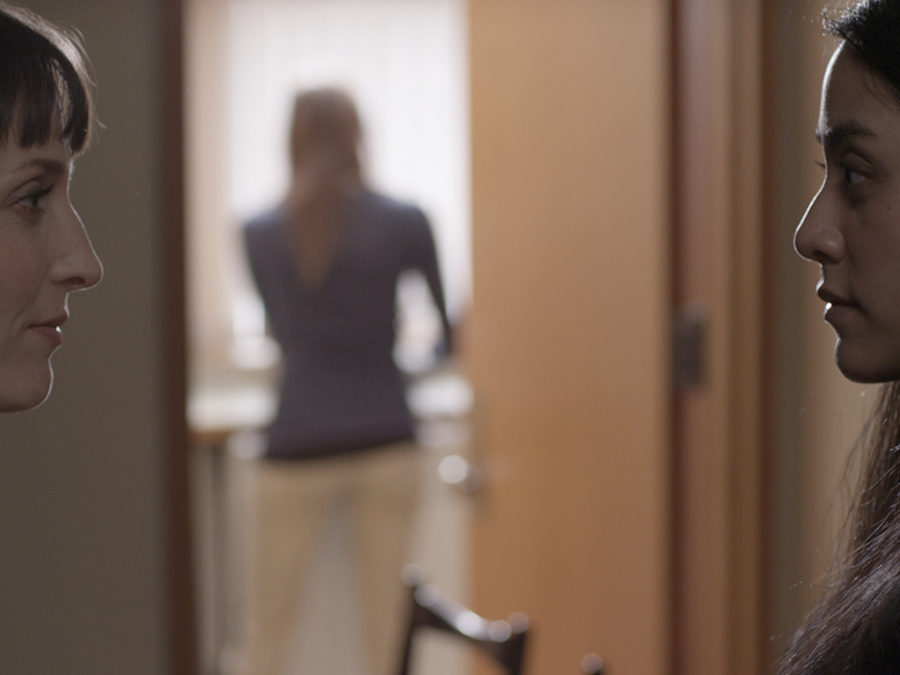The film GRAD (2004) reflects female perspectives on the experiences of a community that has lost its motherland thirteen years after the implosion of the Soviet Union. Valya, the protagonist, goes on walks with her gang of girlfriends in post-communist St. Petersburg, annexing unknown, derelict, and ostensibly lost areas of the city. Staged as psychogeographic landscapes, the houses, streets, underground tunnels, and marginal neighborhoods are part of a tour guided by a hypnotic exkursavod figure. During a communal foray, the girlfriends encounter the doubles of Vladimir Ilyich Lenin, Adolf Hitler, and Chuck Norris, three emblematic figures of past ideologies and moral vacuums of the 20th century. Unimpressed by these tired ‘heroes,’ Valya lets the three men tell about their real lives, where the political and private are inextricably intertwined.
A birthday meal with her mother and her three adopted sisters ends in a fiasco when the youngest among them challenges their mother’s recollections of the gulag. Just as the male doppelgangers fall out of character, the compatriots successively lapse in their solidarity.
GRAD is a post-ideological film about three generations of millennial women in Russia. The encounter with the doppelgangers and the psychogeographic sets make the phantoms of indoctrination – whether those under socialism or cognitive capitalism – aesthetically and narratively tangible. From today’s perspective the film looks like a fictive historical document, it discloses the interim period between the collective amnesia of the 1990s and the nostalgia for the Soviet Union since the early 2000s.
Text by Ulrike Gerhardt
Lene Markusen is a visual artist, scriptwriter, and film director. She was born and raised in Denmark and lives in Hamburg, Germany. From 1993–94 she studied in St. Petersburg (or former Leningrad), where both of her films GRAD (2004) and Sankt – Female Identities in the Post-Utopian (2017) are set. From 2011-2017, she was a lecturer at the University of Fine Arts Hamburg. Currently she is working on her next feature film Romy und Julia / Romy and Julia, supported by the Filmförderung Hamburg Schleswig-Holstein. Her films and video installations have been screened and exhibited at Museum für Neue Kunst Freiburg, Staatliche Kunsthalle Baden-Baden, Hamburger Kunsthalle, Photo Paris, Halle für Kunst Lüneburg, K21 Kunstsammlung Nordrhein Westfalen, Stuk, Leuven, and Ausstellungshalle der Bundesrepublik Deutschland, among others.
